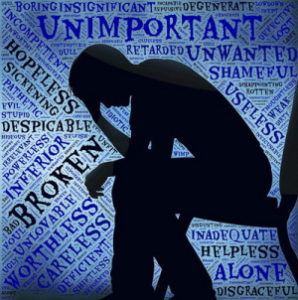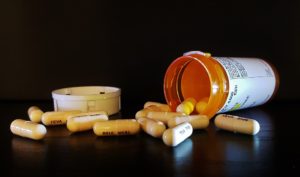
Have you ever felt your heart start to beat fast? You might have hypertension. Although a fast heartbeat can be the result of many things, let’s not rule high blood pressure as one of the reasons.
As the heart beats, it creates a pressure that pushes the blood through the arteries, veins, and capillaries.
This push, called blood pressure, is the result of two factors: The first force occurs as the blood pumps out of the heart and into the arteries. The second force is created when the heart rests between beats.
Due to certain conditions, there are times when the heart must work harder to push the blood through the arteries, which subsequently results in less efficient circulation, as well as adding additional friction against the blood vessel’s walls.
One analogy is when you run water from a faucet down into a glass. If you turn the faucet higher, the water will run faster and if you are not watching what you are doing, the glass will overflow.
Now, what if the glass was covered except for the area where the faucet hits an opening at the top of the glass? At some point, something is going to happen and it won’t be a pretty sight. But what if you increase the water pressure? Whatever is going to happen is going to happen quicker. None of this is good.
Using a different analogy of water. Envision it falling against a set of rocks, if the water moves faster, over time, the rocks’ surface will become abraded. Similarly, blood moving through your veins at a faster than normal rate can cause unwanted damage to these vessels, not to mention that your heart has to pump harder and faster as well. This is high blood pressure, also known as hypertension.

The more the plaque and damage that increases, the narrower the arteries become, which in turn, increases blood pressure because the body wants that blood to keep flowing, but this develops into a cycle that can do more damage to your arteries, as well as your heart and the rest of your body. In turn, dangerous conditions can occur, ranging from arrhythmia to heart attack and stroke.

There are numbers associated with blood pressure and it is used as a standard reference to determine when a person has hypertension. An elastic band is placed around the person’s arm, called a cuff and a manual pressure gauge is used to read the blood pressure of the individual. A rate of 120 over 80 (120/80) is considered normal. The first number represents the pressure of the blood when pumped out of the heart (called systolic) and the second number (called diastolic) represents the pressure between beats. Anything above 120/80 is considered higher than normal and would require treatment, usually medication.
As mentioned, hypertension can result in a plethora of different health complications. It’s important to note that stroke and heart disease are the leading causes of death in the US.
According to a report from the Center for Disease Control and Prevention, more than one-third of American adults, many of who are over 50 are suffering from this condition and nearly half of them are not aware of it.

Many people fail to control the issue of high blood pressure because they are not aware of the different attributes of the disease. For this reason, hypertension is also called a silent killer because most of its symptoms are not external in nature. A person may come to know of its effects after years that he/she has been suffering from it. However, by then, the significant irreparable damage might have already occurred.
Although high blood pressure can cause deadly occurrences, is can be easily controlled with the right medications and by maintaining a healthy lifestyle. In this article, we will cover the important points regarding hypertension so that one can tackle this ongoing medical condition efficiently.
What Causes High Blood Pressure?
To list a few: Smoking, obesity, lack of exercise, stress, too much salt consumption, too much alcohol consumption, genetics and sleep apnea. Let’s take a closer look at how these health issues can cause your heart to pump harder.
Smoking
One of the most (and popularly know) entities that cause damage to your body is smoking. As far as high blood pressure is concerned, it increases the risk of the buildup of plaque inside your arteries. In general, every time you pick up a cigarette, it can cause a temporary increase in your blood pressure. This applies to second-hand smoke as well.
Excess Body Weight
Obesity begets many different health complications and hypertension is one of them. Aside from increasing inches of your waistline, obesity also makes the arteries stiffer and thicker. This distortion of the circulation system consequently results in increased blood pressure.
Unlike stress, obesity is an ongoing physical condition, which means the affected person will also constantly suffer from the perils of hypertension. As mentioned earlier, persistent high blood pressure can lead to fatal diseases.
Stress and Anxiety
 Sadly, we are living in a stress-ridden world and sometimes there is no way around it. But for people suffering from high blood pressure, increased levels of stress are not just bad for your mental health, they also aggravate many parts of the body and increased high blood pressure is no exception.
Sadly, we are living in a stress-ridden world and sometimes there is no way around it. But for people suffering from high blood pressure, increased levels of stress are not just bad for your mental health, they also aggravate many parts of the body and increased high blood pressure is no exception.
Cortisol is the hormone responsible for the psychological effects of increased levels of stress. The fight or flight response provoked by the increased secretion of cortisol in the bloodstream also results in increased blood pressure counts. You can try to limit your stress by following these recommendations.
Sodium Consumption
Sodium is an important mineral for intracellular activities. However, excess sodium in the body can be very detrimental to human health, particularly for people suffering from high blood pressure. We consume sodium in different forms of salt. The sodium present in it aids the kidney to increase water retention, which consequently results in hiked-up blood pressure.
Processed dietary products are rich in salts; therefore, it would be helpful to limit their use. Try to maintain your daily sodium intake by not more than 1500 mg. This amount of salt equals slightly less than one tablespoon. Even if you are not suffering from hypertension, gradually reduce your daily intake of sodium to make yourself less susceptible to develop this cardiovascular condition later in life.
Cautious Use of Medications

Whether you are using prescription or OTC medications, both of them contain several side effects. Therefore, their cautious use is very important, even for people who are not suffering from any serious health condition.
Be aware of OTC drugs, especially those available for seasonal flu, cold and decongestants, which can raise blood pressure. Similarly, the administration of some supplements can result in high levels of blood pressure. Never consume any medication or nutritional supplement without prior consultation with your doctor, particularly if you are already suffering from this condition.
Controlling High Blood Pressure
In many cases, particularly if incurred in later years, hypertension becomes a lifelong medical condition where affected individuals have to make certain adjustments to their lifestyle in order to minimize the detrimental effect of it. By taking care of certain things, you can make sure that you are living healthy even with the ongoing condition of hypertension.
Adoption of the DASH Diet
Dietary Approach to Stop Hypertension (DASH) is a diet routine recommended by the Institute of the National Heart, Lung and Blood Institute for the prevention and control of hypertension. This diet plan recommends the addition of whole grains, fruits (especially bananas, because they are rich in potassium), vegetables, white meat and nuts in daily meals and discourages the consumption of red meat, saturated fats, artificial, processed sweeteners and fat-enriched dairy products.
Eating the right foods can’t be stressed enough. Fruits and vegetables alone are highly recommended to help fight free radicals, as well as providing an assortment of healthy nutrients for your entire body – and that includes fighting high blood pressure. In addition to these healthy nutrients, dark chocolate and garlic have been found to assist in keeping your blood pressure in a normal state.
So don’t just read these recommendations. Make it part of your lifestyle starting today!
Exercise
Regular and increased physical activity helps in maintaining the well-being of the cardiovascular system. With more aerobic exercises, you can ensure that your heart’s activity remains unaffected in instances of high blood pressure. Fitness experts recommend that the inclusion of two and a half hours of moderate physical activity, which is spread throughout a week, can help in strengthening your cardiovascular system.
Furthermore, the increased physical activity also helps in reducing body weight, which can otherwise add to the aggravation of hypertension. Moderate physical activities can be performed in the form of brisk walking, cycling, swimming, gardening and any other aerobic exercise of your preference.
Using Medication
There is an abundance of successful medications that are used to control high blood pressure. Metoprolol, Losartan, and Amlodipine are some of the more popular ones, but let’s have a look at these and others and how they help to maintain a steady heartbeat and pressure. Please note, all of these drugs MUST NOT BE administered without the consultation of a qualified physician.
Diuretics
Diuretics are a class of drugs used to catalyze the production of urine. It is usually recommended for acute hypertension patients for lowering their blood pressure levels with the exclusion of sodium and water from the body through urine.
Beta-Blockers
A beta-blocker is another class of drug prescribed to patients with abnormal heartbeat caused by increased levels of blood pressure. These drugs slow down heart activity to protect it from the detrimental consequences of hypertension.
